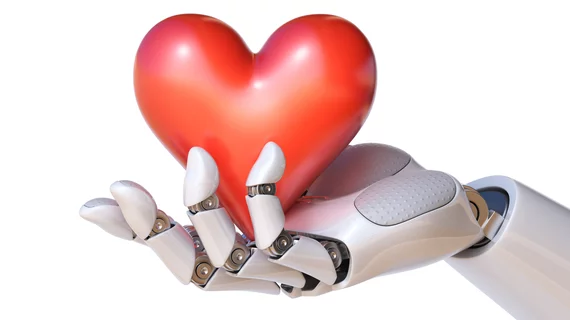French company Robocath announced Sept. 24 it had successfully completed its first two in-human coronary angioplasties performed with assistance from its R-One robotic platform.
Robocath issued a statement earlier this month stating that it had raised $5.5 million to support R-One, which attempts to optimize the safety of robotic-assisted coronary angioplasties. The system is designed to facilitate and enhance procedures for patients while offering a better working environment for the onsite interventional cardiologist and their team.
Both recent angioplasties were performed in France—one at Rouen University Hospital headed by Eric Durand and Remi Sabatier, and the other at Clinique Pasteur in Toulouse, led by Jean Fajadet.
“I am very happy with the success of these procedures and confident regarding the study results,” Fajadet said in a release. “We are on the cusp of a major revolution in the field of interventional cardiology, thanks to the possibilities opened up by vascular robotics that we are developing at Clinique Pasteur.”
Lucien Goffart, CEO of Robocath, called the pair of successful procedures “a French success story” that’s a critical step in the company’s development.
“These two successes mark a new era in the way interventional cardiology is practiced in Europe today,” Philippe Bencteux, president and founder of Robocath, said in the release. “It is a project we have worked on for several years and the entire team and I are extremely proud of the success of these two procedures.”

